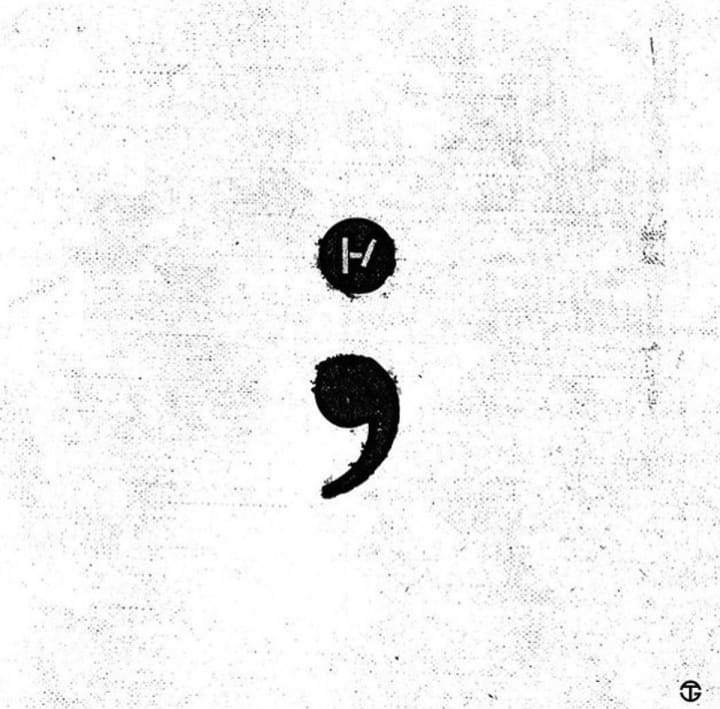Best Mental Illness Memoirs
These personal accounts of mental health struggles and psychiatric disorder give us a more profound understanding of the human condition.

If you are lucky enough to have never experienced mental illness firsthand, rest assured you know people who have, probably many of them. Despite the leaps and bounds the scientific community has made in categorizing diagnoses and fine-tuning psychiatric treatments, some aspects of the experience simply cannot be measured quantitatively. The brain, after all, cannot be properly understood without acknowledging one's individual emotional experience. Firsthand accounts about mental illness provide insight into the human psyche that no blood test or brain scan possibly could. Each of these testimonies speaks to a slightly different set of symptoms, environmental circumstances, prognosis and recovery; and yet, each one shares a common thread of empathy that transcends all differences in detail. These mental illness memoirs are must-reads for anyone who's experienced similar suffering as well as those who want to try and understand.
My Lovely Wife in the Psych Ward by Mark Lukach

Giulia and Mark Lukach (Photo via David Butow/New York Post)
Giulia and I fell in love effortlessly, in our carefree teens. We've now loved each other desperately, through psychosis.
Mark and Giulia Lukach once had a fairytale romance–the couple met and fell in love in their late teens and married shortly after–until, suddenly, they didn't. At just twenty-seven years old, Giulia suffered her first of multiple psychotic breaks and hospitalizations; ever since then, a new normal settled in for a woman diagnosed with mental illness and her husband who could do nothing but resolve to stand by her no matter what. In My Lovely Wife in the Psych Ward: A Memoir, author Mark Lukach meditates on a tumultuous love and a marriage tested by his wife's mental illness but never destroyed by it. The memoir is a must-read for both its insightful, painstaking description of how mental illness manifests itself, as well as its uplifting message that relationships needn't be simple to survive.
Learn more about Mark Lukach and follow him on Twitter at @marklukach.
Agorafabulous! by Sara Benincasa

“So I didn’t need evidence or logic to know that something singularly terrible lay outside my door. I just needed my inner knowing, my sixth sense, the still small voice that shrieked, “YOU’RE GONNA FUCKING DIE!!” upon my awakening.”Like many of us, writer, comedian, YouTube star and podcast host Sara Benincasa has some fears and concerns that others might consider irrational. Unlike most of us, Benincasa's invasive thoughts are a result of her agoraphobia, an anxiety disorder characterized by a paralyzing fear of going to any environment that 'something bad' might happen, which is to say, pretty much everywhere. But how does a young, recently-graduated Sara Benincasa reconcile her dream of making it in the entertainment industry with her sheer panic of leaving the safe cocoon of her bedroom–and in NYC, no less? In her funny, honest and perceptive mental illness memoir Agorafabulous! Dispatches from My Bedroom, author Sara Benincasa chronicles her first stabs at adult life, and her attempt to patch together the adulthood she wants, while coming to terms with a brain composition that makes achieving that a lot more complicated. Expectedly, Benincasa's account is as poignant as it is hysterical and speaks to the power of humor to lighten even the darkest of moments and turn it into a teachable moment.
Learn more about Sara Benincasa and follow her on Twitter at @SaraJBenincasa
So Sad Today: Personal Essays by Melissa Broder

“I feel bad about my struggle, because it is nothing compared to other people’s struggles and yet it still hurts.”
The title of author Melissa Broder's mental health memoir, So Sad Today, is a call back to the anonymous Twitter account she launched back in 2012 as an outlet for her unrelenting struggle with panic attacks, anxiety and existential dread that was a hallmark of her early adulthood. In her memoir, Broder expands on the existential questions, fears, and sentiments she usually packs into 140 characters or less. Her memoir is a must-read for young people battling psychiatric disorders or ones who are guilty of being too hard on themselves too often. Broder's collection of personal essays reminds us that it's okay to be sad, that we're all a little fucked up, and that that's okay.
Learn more about Melissa Broder and follow her on Twitter at @melissabroder.
The Man Who Couldn't Stop: OCD and the True Story of a Life Lost in Thought by David Adam

"I was told as a child that I thought too much. But I liked to think. I liked to roll ideas around my head, to test some to destruction and to rehearse my lines. OCD robbed me of that pleasure. My thoughts became the enemy within."
Science journalist and writer Dr. David Adam suffered from Obsessive Compulsive Disorder for two decades before he sought medical treatment. For all the pain and torment he experienced living as a prisoner of his own mind, those two decades had the upside of affording Adam a uniquely personal yet scientific perspective of OCD, and of the difference between uncomfortable thoughts that are fleeting and ones that are debilitating. Having since learned how to control his mind and his pathological symptoms, David Adam wrote The Man Who Couldn't Stop: OCD and the True Story of a Life Lost in Thought, which is equal parts mental illness memoir and a fascinating investigation into the science behind OCD and obsessive thoughts. Through various OCD case studies coupled with his personal take on similar principles, Dr. Adam imparts a compassionate, enlightening and ultimately hopeful perspective on the human mind and our ability to overcome.
Learn more about David Adam and follow him on Twitter at @davidneiladam.
Reasons To Stay Alive by Matt Haig

"If you are the type of person who thinks too much about stuff then there is nothing lonelier in the world than being surrounded by a load of people on a different wavelength."
It gets better, they say; but like anything else, easier said than done. Somehow, though, this suicide prevention sentiment is just a little bit more easily digested when it comes from someone who's been there before. At just 24 years old author Matt Haig, who gave us best-selling novel The Humans, among others, found himself plagued by deep depression and unable to fathom continuing on and living–such is the tragic nature of suicidality. But overcome it, he did, a journey Haig documented in his mental illness memoir Reasons to Stay Alive. It's the true story of an ugly illness, unbearable pain, and a person that managed to carry on despite sheer disbelief that he ever could. Reasons is both an emotional and a humorous commentary on how we live, how we love, and the subtle joys of life that we often overlook.
Learn more about Matt Haig and follow him on Twitter at @matthaig1.
Electroboy: A Memoir of Mania by Andy Behrman

“Bipolar disorder is about buying a dozen bottles of Heinz ketchup and all eight bottles of Windex in stock at the Food Emporium on Broadway at 4:00 a.m...carrying $20,000 in $100 bills in your shoes into the country on your way back from Tokyo, and picking out the person sitting six seats away at the bar to have sex with only because he or she happens to be sitting there.
As is not uncommon with bipolar disorder diagnoses, it took years before Andy Behrman's mental illness was recognized as such. With an innately rambunctious personality and numerous career changes–including PR agent, filmmaker, art dealer and stripper–his extreme swings from periods of mania to bouts of depression were either written off, downplayed or overlooked entirely. It took a worsening of symptoms and a scandal involving art forgery for Andy Behrman to finally be diagnosed, treated and start working toward recovery. His memoir, Electroboy, tells of the life he lived, his downward spiral, his electro-shock therapy, and how he views it all in hindsight. With frankness, humor and emotion, Behrman's illustration of mental illness reads like a blend of catharsis, cautionary tale and call to action; more than anything else, Behrman imparts the kind of sentiment that sticks with you.
Learn more about Andy Behrman and follow him on Twitter at @electroboyusa
Notes on a Banana by David Leite

Hanging myself was out of the question: I was too fat, and I'd just end up ripping out the chandelier, which meant I'd have to pay for the repairs on top of explaining the hole in the ceiling to my landlord.
For David Leite, cookbook author and founder of the award-winning food website Leite's Culinaria, bipolar disorder was both a driving force and a hindrance to his lifelong passion for and career in food. That's the thing about mental illness; it's hard to separate it from the influence it had on your identity. In his memoir, Notes on a Banana, Leite reflects on his Portuguese-American and Catholic upbringing, and the impact this environment had on the trajectory of his life. Leite harkens back to early memories of frightening, extreme mood swings (later diagnosed as manic depression), his coming out as homosexual, and his concurrent, growing passion for food and food TV.
Learn more about David Leite and follow him on Twitter at @davidleite.
Marbles: Mania, Depression, Michelangelo, and Me by Ellen Forney

I had this sense that I was part of, sort of a lineage of artists and writers through history that have had mood disorders.
It's a well-observed fact that some of the greatest and celebrated minds in history struggled with mental illness ranging from the mild to the severe. What exactly is the correlation between creativity and psychiatric disorder, and more importantly, what meaning do we take from it? In her graphic memoir, aptly titled Marbles: Mania, Depression, Michelangelo, and Me, cartoonist and educator Ellen Forney examines this correlation between mental illness and creativity, telling of her own experience of bipolar disorder as well as that of famous artists throughout history.
Learn more about Ellen Forney and follow her on Twitter at @ellen_forney
Lithium Jesus: A Memoir of Mania by Charles Monroe-Kane

By the time you get to my age, you’ve experienced fear.A man with a gun. An acid trip gone wrong. A serious car accident.Holding a loved one’s hand in the ICU.But there is something singular about the fear that comes from hearing voices.Voices no one can hear but you.
Charles Monroe-Kane grew up hearing voices in his head–the question is, which one should he follow? For two decades of his adulthood, the author of mental illness memoir Lithium Jesus let his schizophrenia symptoms drive his actions; true to diagnosis, Monroe-Kane jumped from gig to gig including faith healer, globetrotter, smuggler, circus manager, liberation theologian, ladder-maker, squatter and environmental warrior. In his engaging, frank, funny and thrilling account, the author talks mental illness, faith, substance abuse, and lessons learned.
Learn more about Charles Monroe-Kane and follow him on Twitter at @LithiumJesus
A Legacy of Madness: Recovering My Family from Generations of Mental Illness by Tom Davis

She repeated, but she seemed too tired to continue very long. She stayed in her chair all day, watching the television, often with the sound way down. When we saw her, there was no more of the pleading. There was no more of the helplessness. She was a mother again.
We are all, in large part, a mere product of our family gene pool. A Legacy of Madness documents author Tom Davis's deep dive into his own family history; he tries to understand his own mental illness by reflecting on secret and not so secret struggles of his relatives from generations past. Davis' mental illness memoir is fascinating and heartbreaking; he discloses the details of his personal battle with bulimia, how his family dealt with the depression, OCD, and alcoholism that pummeled his mother and grandfather, and reexamines the circumstances that surrounded the multiple suicides in his family tree.
Learn more about Tom Davis and follow him on Twitter at @NJShorePatch
About the Creator
Rachel G. David
Head of Business Development @ Creatd (Nasdaq: CRTD)






Comments
There are no comments for this story
Be the first to respond and start the conversation.